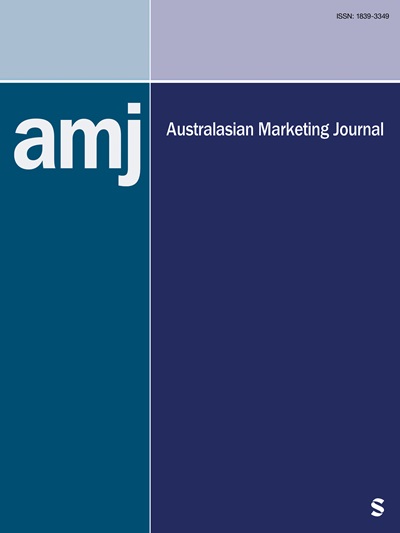Artificial Intelligence (AI): Revolutionizing Digital Marketing
IF 4
Q2 BUSINESS
引用次数: 24
Abstract
Artificial intelligence (AI)-enabled digital marketing is revolutionizing the way organizations create content for campaigns, generate leads, reduce customer acquisition costs, manage customer experiences, market themselves to prospective employees, and convert their reachable consumer base via social media. Real-world examples of organizations who are using AI in digital marketing abound. For example, Red Balloon and Harley Davidson used AI to automate their digital advertising campaigns. However, we are early in the process of both the practical application of AI by firms broadly and by their marketing functions in particular. One could argue that we are even earlier in the research process of conceptualizing, theorizing, and researching the use and impact of AI. Importantly, as with most technologies of significant potential, the application of AI in marketing engenders not just practical considerations but ethical questions as well. The ability of AI to automate activities, that in the past people did, also raises the issue of whether marketing professionals will embrace AI as a means to free them from more mundane tasks to spend time on higher value activities, or will they view AI as a threat to their employment? Given the nascent nature of research on AI at this point, the full capabilities and limitations of AI in marketing are unknown. This special edition takes an important step in illuminating both what we know and what we yet need to research.人工智能:数字化营销的革命
人工智能(AI)支持的数字营销正在彻底改变组织为活动创建内容、产生潜在客户、降低客户获取成本、管理客户体验、向潜在员工推销自己,以及通过社交媒体转换可接触的消费者群的方式。组织在数字营销中使用人工智能的真实例子比比皆是。例如,红气球和哈雷戴维森利用人工智能实现了数字广告活动的自动化。然而,我们正处于企业广泛应用人工智能的早期阶段,尤其是在其营销职能方面。有人可能会说,我们甚至更早地进入了对人工智能的使用和影响进行概念化、理论化和研究的研究过程。重要的是,与大多数具有重大潜力的技术一样,人工智能在营销中的应用不仅会产生实际考虑,还会产生伦理问题。人工智能自动化活动的能力,就像过去人们所做的那样,也提出了一个问题,即营销专业人士是否会接受人工智能,将其从更平凡的任务中解放出来,将时间花在更高价值的活动上,还是会将人工智能视为对就业的威胁?鉴于目前人工智能研究的萌芽性质,人工智能在营销中的全部能力和局限性尚不清楚。这个特别版在阐明我们所知道的和我们还需要研究的方面迈出了重要的一步。
本文章由计算机程序翻译,如有差异,请以英文原文为准。
求助全文
约1分钟内获得全文
求助全文
来源期刊

Australasian Marketing Journal
BUSINESS-
CiteScore
14.90
自引率
16.70%
发文量
25
期刊介绍:
The Australasian Marketing Journal (AMJ) is the official journal of the Australian and New Zealand Marketing Academy (ANZMAC). It is an academic journal for the dissemination of leading studies in marketing, for researchers, students, educators, scholars, and practitioners. The objective of the AMJ is to publish articles that enrich and contribute to the advancement of the discipline and the practice of marketing. Therefore, manuscripts accepted for publication will be theoretically sound, offer significant research findings and insights, and suggest meaningful implications and recommendations. Articles reporting original empirical research should include defensible methodology and findings consistent with rigorous academic standards.
 求助内容:
求助内容: 应助结果提醒方式:
应助结果提醒方式:


